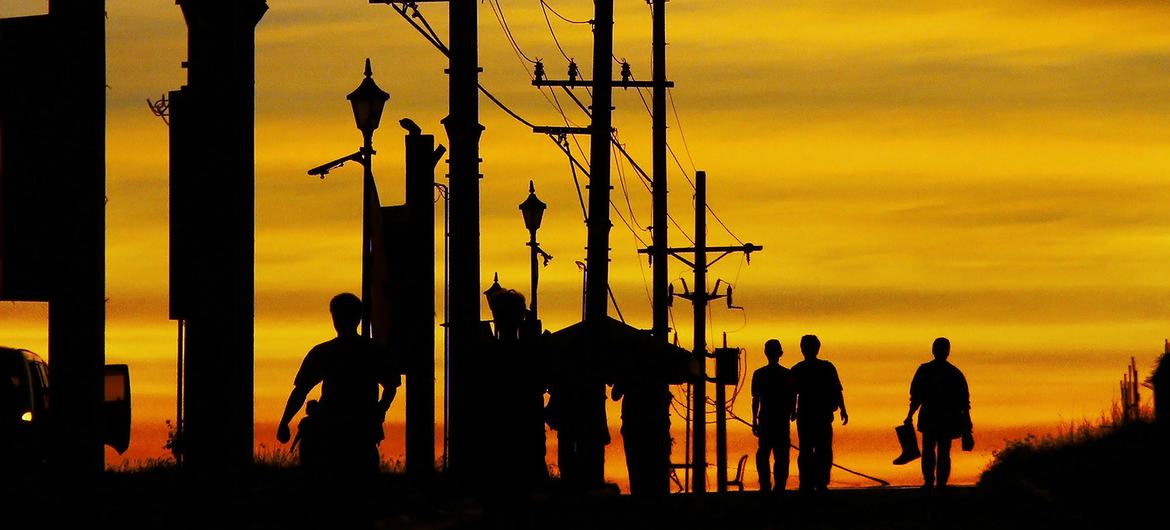By Vibhu Mishra, July 25, 2024 – Climate and Environment
UN Secretary-General António Guterres issued a stark warning on Thursday, calling for urgent global action to protect billions of people exposed to the devastating effects of extreme heat, as temperatures continue to rise unabated worldwide.
The call to action follows record temperatures and lethal heatwaves affecting regions from the United States and Europe to Africa’s Sahel and the Middle East, with several hundred fatalities recorded this summer alone. Notably, over 1,300 lives were lost to scorching heat during the Hajj pilgrimage.
“Billions of people are facing an extreme heat epidemic – wilting under increasingly deadly heatwaves, with temperatures topping 50 degrees Celsius around the world. That is 122 degrees Fahrenheit – halfway to boiling,” Guterres stated at a press conference at UN Headquarters in New York.
Protecting the Vulnerable
Highlighting the uneven impact of heatwaves, the UN chief emphasized that urban poor, pregnant women, children, the elderly, people with disabilities, the sick, and the displaced are most at risk. These groups often reside in inadequate housing with limited access to cooling solutions.
UN estimates reveal that heat-related deaths among those over 65 have surged by 85% over the past two decades. Furthermore, while 25% of children currently face frequent heatwaves, this figure could rise to nearly 100% by 2050.
“We must respond by massively increasing access to low-carbon cooling, expanding passive cooling – such as natural solutions and urban design, and cleaning up cooling technologies while boosting their efficiency,” Guterres urged. He also called for increased financial support to shield communities from “climate chaos.”
Protecting Workers
Guterres underscored the need to enhance worker protections, noting that over 70% of the global workforce, or 2.4 billion people, are at significant risk from extreme heat. The situation is especially dire in Africa and the Arab regions, where over 90% and 80% of workers, respectively, are exposed. In Asia and the Pacific, 75% of workers are at risk.
Heat stress at work is projected to cost the global economy $2.4 trillion by 2030, up from $280 billion in the mid-1990s.
“We need measures to protect workers, grounded in human rights,” Guterres stressed. “And we must ensure that laws and regulations reflect the reality of extreme heat today – and are enforced.”
Boosting Resilience
The UN chief also highlighted the need to bolster the resilience of economies and societies, citing the adverse effects of extreme heat on infrastructure, crop yields, water supplies, health systems, and electricity grids. Cities, experiencing heating at twice the global average rate, are particularly vulnerable.
To tackle these challenges, Guterres called for comprehensive, data-driven action plans tailored to specific countries, cities, and sectors. “We need a concerted effort to heatproof economies, critical sectors, and the built environment.”
Fighting the Root Cause
Guterres reiterated the importance of addressing the broader impacts of extreme heat, including hurricanes, floods, droughts, wildfires, and rising sea levels. He stressed the urgent need to reduce reliance on fossil fuels and to enhance climate action to limit global temperature rise to 1.5°C.
Governments, particularly G20 nations, the private sector, cities, and regions must urgently adopt climate action plans. Countries must also phase out fossil fuels and halt new coal projects.
“They must act as though our future depends on it – because it does,” Guterres concluded.
For more information, visit the UN’s official announcement.


 العربية
العربية